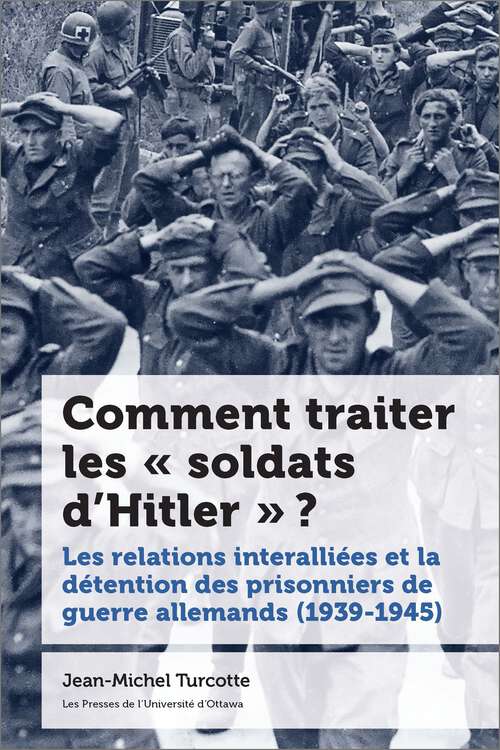
Comment traiter les « soldats d’Hitler » ?: Les relations interalliées et la détention des prisonniers de guerre allemands (1939-1945) (Études canadiennes)
Canadian non-fiction, World War II, Politics and government
Synthetic audio, Automated braille
Summary
Far from being restricted to barbed wire camps or within the borders of a single nation, the detention of German soldiers remains a little-known part of history in the specific context of the triangular relationships between Ottawa, Washington, D.C., and… London.It is from this perspective that the book Comment traiter les « soldats d’Hitler ? » (How to Treat “Hitler’s Soldiers”?) explores the political dynamics between Canadian, American, and British authorities regarding the treatment of German prisoners of war. Throughout the Second World War, these Allied forces detained close to 600,000 of “Hitler’s soldiers” on their respective territories. While managed by each state, these incarceration operations raise several issues involving interallied cooperation.This detailed analysis compares the captivity regimes developed by each government according to their national prerogatives and looks at important differences in how the three North Atlantic Allies dealt with enemy soldiers. Turcotte takes stock of the countries’ common and respective policies, which stemmed from participation in joint projects, regular meetings looking to better coordinate their actions, consultations and correspondence between them, as well as discussions on problems tied to the detention of prisoners of war and the solutions put forth. It also presents each state’s position on the 1929 Geneva Convention, the forced labour of detainees, and the denazification program. The conditions of captivity for German soldiers were therefore the result of mutual influence between the three main detaining powers of the Western Front, which was shaped by each of their experience. Following this argument, the author brings to light the key role Canada played within the Allied forces at the time. Published in French.